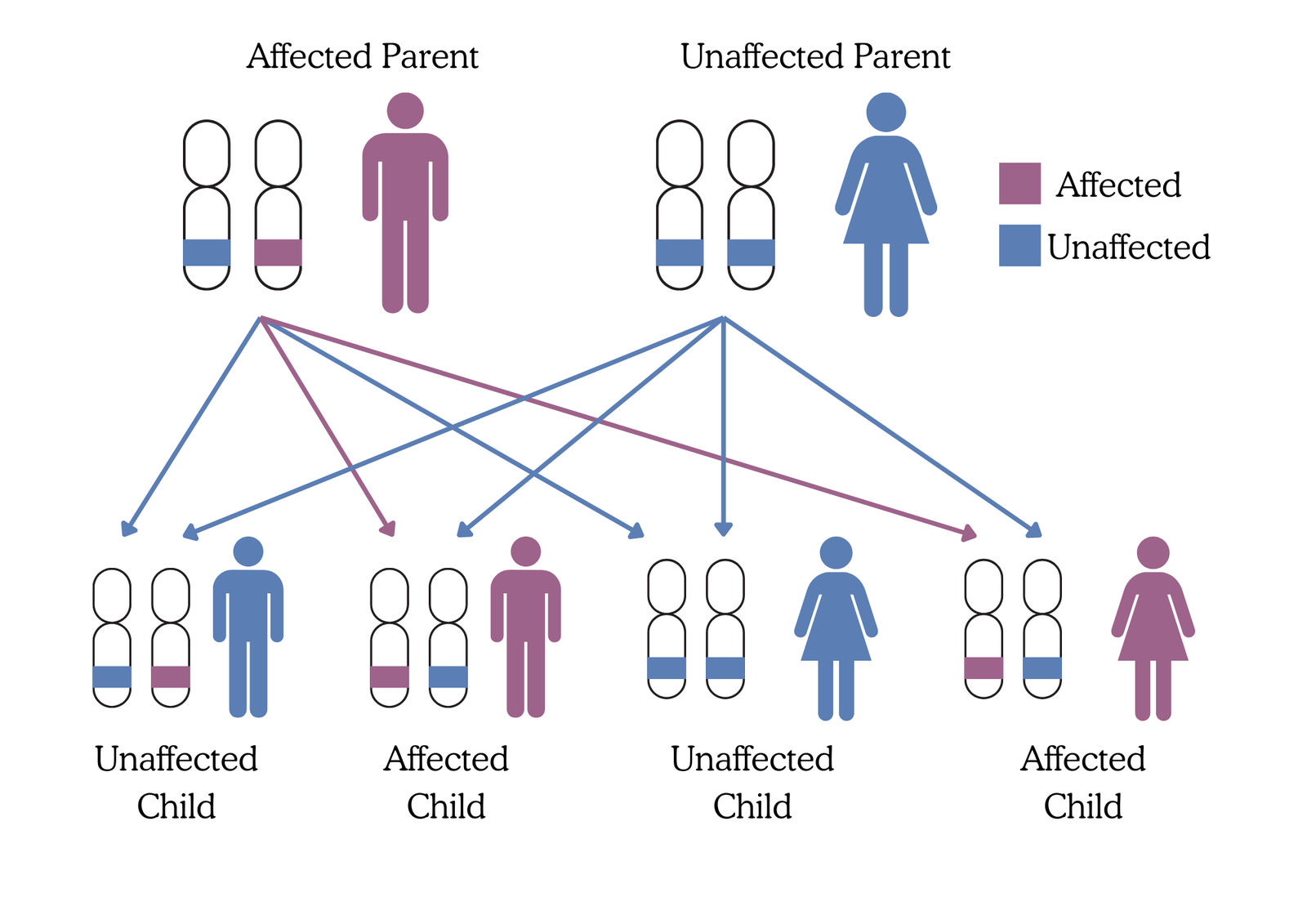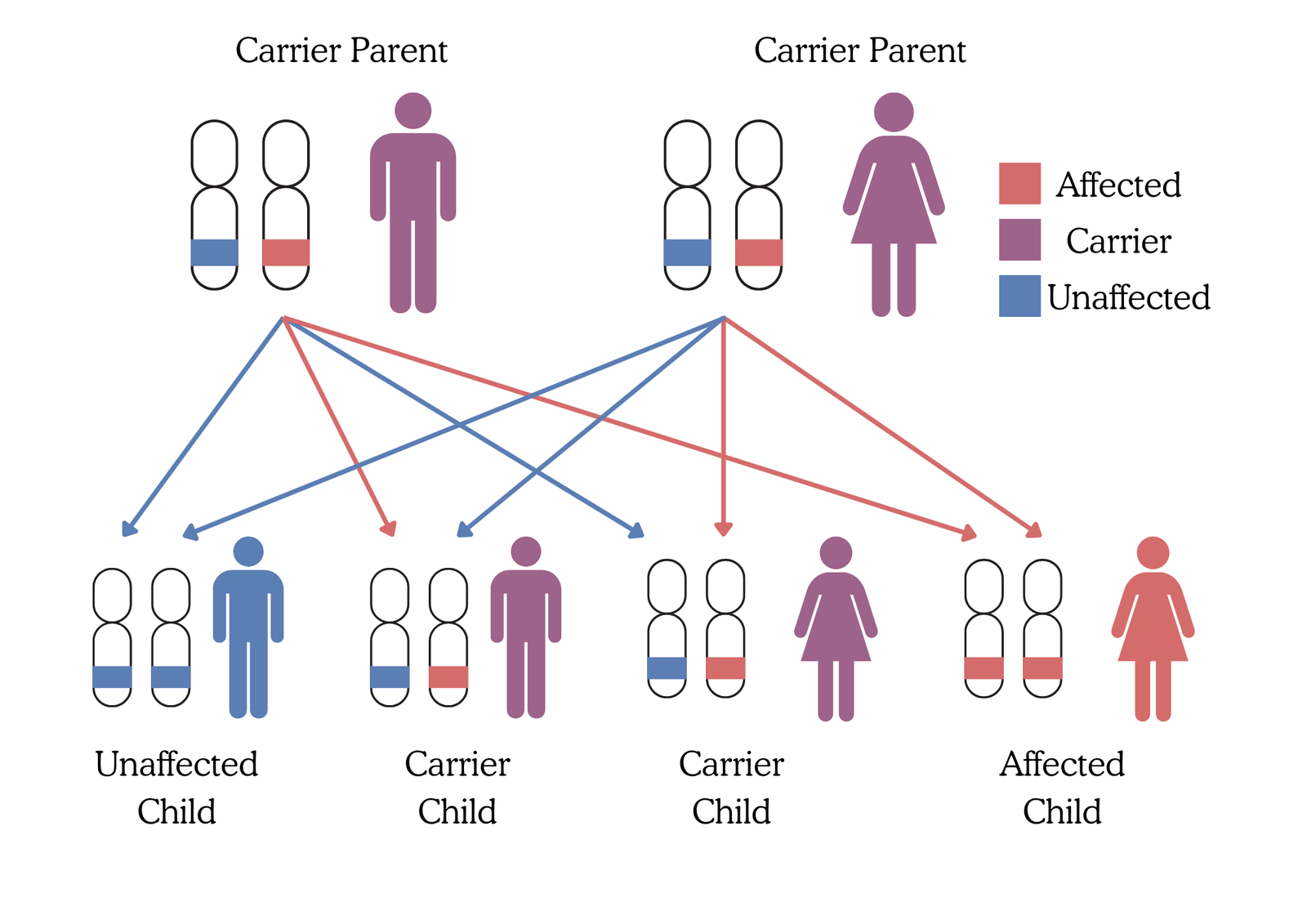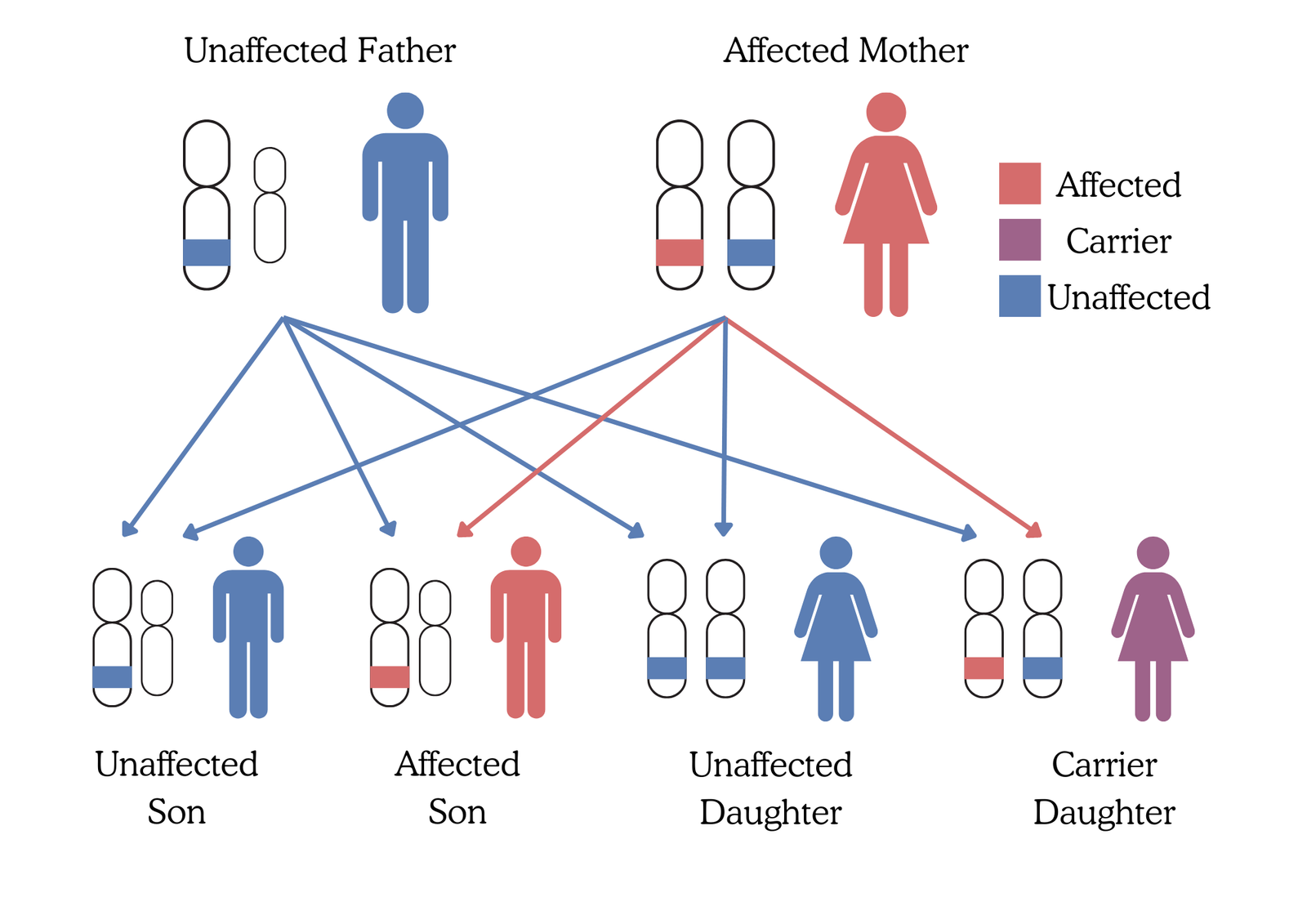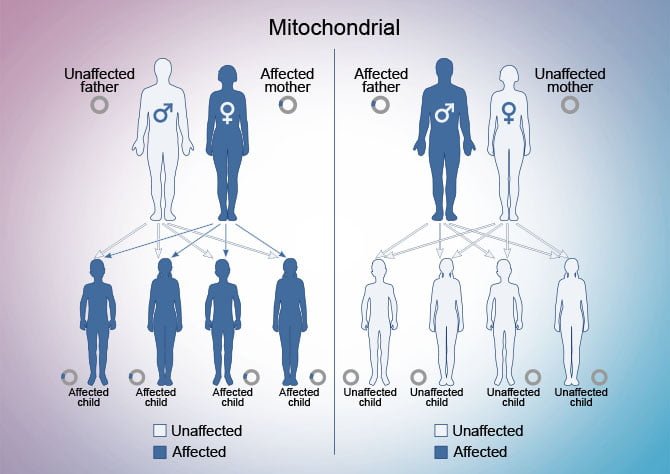
Understanding Genetic Inheritance
Genetics can often seem complex due to the various inheritance patterns that genetic traits and disorders can follow. This section provides easy-to-understand information about different types of genetic inheritance, including:

Autosomal Dominant
Autosomal dominant inheritance refers to conditions that occur due to changes in one copy of a gene. This type of inheritance pattern can cause the associated conditions in any individual who inherits the altered gene. Given its dominant nature, the presence of one altered gene is adequate to express the condition.

Autosomal Recessive
Autosomal recessive inheritance occurs when both copies of a gene in an individual have changes. The conditions are not typically seen in parents but can occur in their offspring if both parents pass on the altered gene. Since carriers of one altered gene usually do not show symptoms, the condition may not be evident until two carriers have children together.

X-Linked (Dominant And Recessive)
X-linked inheritance involves genes on the X chromosome. In X-linked dominant inheritance, a change in a gene on the X chromosome can cause associated conditions. In X-linked recessive inheritance, conditions are seen in individuals with two altered copies of the gene.

Y-Linked
Y-linked inheritance involves genes found on the Y chromosome. This type of inheritance pattern can cause the associated conditions in any individual who inherits the altered gene.

Mitochondrial Inheritance
Mitochondrial inheritance applies to genes in mitochondrial DNA. Conditions associated with changes in mitochondrial DNA can occur in any individual who inherits the altered mitochondrial DNA.
